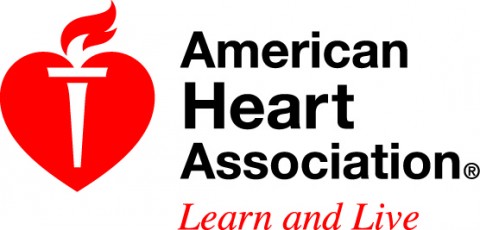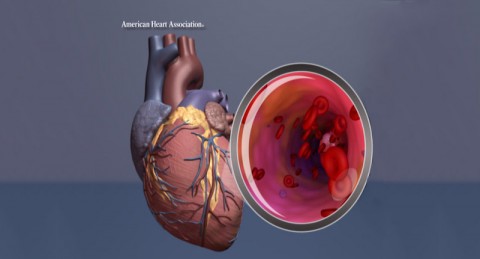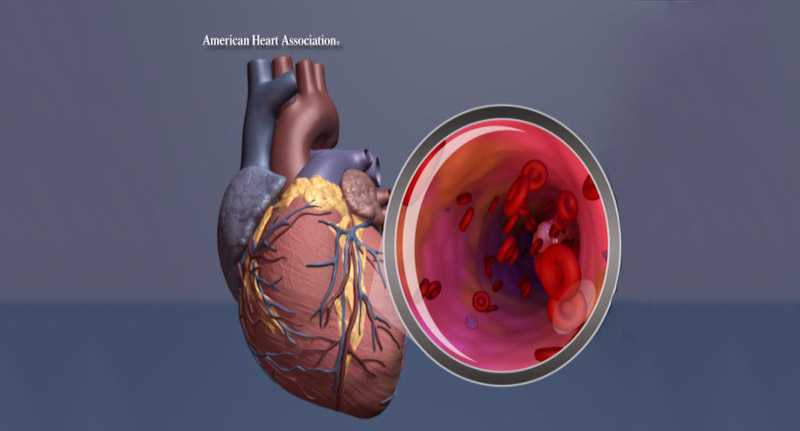American Heart Association Rapid Access Journal Report
 Dallas, TX – For patients age 50 and younger, the risk of premature death after a heart attack has dropped significantly, but their risk is still almost twice as high when compared to the general population, largely due to heart disease and other smoking-related diseases, according to new research in Circulation: Cardiovascular Quality and Outcomes, an American Heart Association journal.
Dallas, TX – For patients age 50 and younger, the risk of premature death after a heart attack has dropped significantly, but their risk is still almost twice as high when compared to the general population, largely due to heart disease and other smoking-related diseases, according to new research in Circulation: Cardiovascular Quality and Outcomes, an American Heart Association journal.

Four of every five heart attack survivors were men and their average age was 45.
The majority of heart attack survivors — 83.6 percent — were between the ages of 40 and 49, whereas only 1.8 percent of them were under age 30.
Researchers found:
- Between 1980–1989 and 2000–2009, heart attack deaths declined from 12.5 percent to 3.2 percent within 30 days, 5.1 percent to 1.6 percent within 31–365 days, and 24.2 percent to 8.9 percent within 1–10 years.
- Patients age 50 and younger had a 1.89-times greater risk of death among one-year survivors compared to the general population, with the leading cause of death being heart disease and other smoking-related diseases.
- Among one-year survivors, women were three times more likely to die after a heart attack compared to the general population, whereas men were 1.7 times more likely. Researchers said the reason for this difference is unclear.
“Although 30-day risk of death following a heart attack has decreased markedly in the last 30 years, younger patients should still have concerns about their long-term health,” said Morten Schmidt, M.D., Ph.D., lead study author and a researcher at the Aarhus University Hospital in Denmark.
“It is estimated that half of the decline in deaths from heart attacks since 1980 is attributable to primary prevention and, in particular, the reduction in the number of patients who smoke,” Schmidt said. “The other half is likely attributable to a combination of things such as the introduction of early treatments that restore blood flow to the part of the heart muscle damaged during a heart attack, improvement in hospital organization, and better management of high blood pressure and high cholesterol.”
Cardiovascular disease risk factors were higher among the heart attack group than the general population, including angina (11.7 percent versus 0.4 percent); high blood pressure (10.6 percent versus 1.2 percent); diabetes (7.4 percent versus 1.1 percent); and obesity (4.6 percent versus 0.8 percent).
For the same reason, it is important that patients make efforts to reduce this long-term risk by adhering to the prescribed medical therapy and by improving their lifestyle, especially by stopping smoking.”
Co-authors are Szimonetta Szépligeti, M.Sc.; Erzsébet Horváth-Puhó, M.Sc., Ph.D.; Lars Pedersen, M.Sc., Ph.D.; Hans Erik Bøtker, M.D., Ph.D., D.M.Sci. and Henrik Toft Sørensen, M.D., Ph.D., D.M.Sci. Author disclosures are on the manuscript.
The study was funded by the Aarhus University Research Foundation, the Danish Heart Association, Kirsten Anthonius Mindelegat, Arvid Nilsson’s Foundation and by the Program for Clinical Research Infrastructure, established by the Lundbeck Foundation and the Novo Nordisk Foundation.
Additional Resources
- View the manuscript online.
- Quit smoking
- Quitting smoking after heart attack reduces chest pain, improves quality of life
- Follow AHA/ASA news on Twitter @HeartNews.
- Follow CircCVQO on Twitter @CircOutcomes



